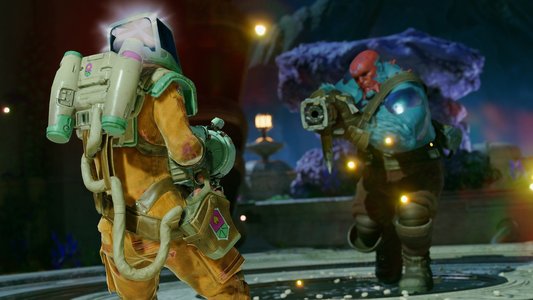[Gamasutra columnist Jeffrey Matulef examines the video game convention of time limits, comparing the differences between the those used in the N64 Zelda title Majora's Mask and Capcom's recent Dead Rising 2.] As somebody who's frequently late to everything and spends most nights wondering where the day went, it often gets my ire when a game imposes a restrictive time limit. Take The Legend of Zelda: Majora's Mask, for example, a game that operates on a three day cycle where most of your progress is erased when you reset to dawn of the first day. While I could appreciate its unique twist on familiar tropes and it its lively world with NPCs going about their tasks, I always found the stress and repetition inherent in its time structure prevented me from loving the game the way I have the rest of the series. So it's surprising that I loved the time limit in Capcom and Blue Castle's recently released XBLA exclusive prequel Dead Rising: Case Zero. There are several reasons, but ultimately the time limit complemented Case Zero's design, whereas in Majora's Mask it ran counter to them. To begin, Dead Rising: Case Zero's premise is predicated on feelings of being lost and panic. You play as Chuck Greene, a father who's daughter Katey has been infected by a zombie virus and requires medical treatment every 12 hours to prevent zombification. With his truck stolen -- along with Katey's med supply with it -- Chuck needs to find a cure and a ride before government soldiers arrive to eliminate any remaining infected, including little Katey. The lion's share of his quest revolves around finding five parts to repair a derelict motorcycle. Wisely, the pieces are scattered in a variety of clandestine ways. Some are hidden in plain sight, others require very detailed exploration, and sometimes would be side missions result in valuable info. It's never clear what undertakings will lead to a reward which makes for tough decision making. The map may be small, but there's no simple trick to tracking these down. Even if you have four of the five items left and half the time remaining, you're far from out of the clear and the sense of panic only ramps up. This lack of direction works in tandem with the ticking clock to engage you in Chuck's desperate struggle. Majora's Mask, however, offered a more linear quest, giving the player guidance where to go. Though it was all too easy to miss a queue and end off wandering in the wrong direction, wasting valuable time. Since you're not supposed to be lost it makes it all the more irritating when you are. Perhaps Case Zero's saving grace is its bite-sized scale. The whole game encompasses little more than two city blocks and the time limit is just over an hour. There's no room to get lost and you rarely feel hopeless since you know you can't be too far from your goal. The brief length also works in its favor, so having to repeat parts of the process over again isn't hugely frustrating (or at least they wouldn't be if it weren't for the long load times.). On the other hand, Majora's Mask is an expansive title requiring you to reset your time limit – and progress along with it – at regular intervals. You may have to repeat the same tasks for the umpteenth time or worse, forget that you haven't fulfilled a certain requirement on the current cycle. It can become very difficult to keep tabs on what you've accomplished at any given time with everything resetting so frequently. Since the game world is so large it can feel hopeless when you're not sure if you're even in the right area to complete your goal. Maybe feeling hopeless is the designer's goal -- it is a very bleak world after all – but since you're able to rewind time as much as you like it ceases to be hopeless and becomes irritating instead. It may sound like a backhanded compliment to Case Zero, but I believe one of the reasons the time limit works so well is because the other elements don't. Combat is a clunky and sluggish affair, which while intentional, isn't exactly fun. Movement is stiff (Chuck can't even run beyond a saunter) and there's little room to interact with the environment. If there was no sense of panic, the world of Dead Rising would get real old, real fast. Majora's Mask is different. Based on a longstanding series it contains lots to muck around with, like bombing walls and seeking pieces of heart. Zelda games are all about exploration, using items with the environment, and solving puzzles which are all more methodical activities that require stopping to look and think. At practically every interval there's a secret to uncover, piece of loot to collect or sidequest to fulfill. This is the stuff of eight hour OCD binges, so lacking the time to give in to its world is infinitely irritating. Both titles can be reluctantly praised for sticking to their guns and refusing to offer a sensible save mechanic. In neither game are you allowed to keep making new save files only to pick and choose which are most practical to reload. Majora's Mask only lets you permanently save by rewinding back to dawn of the first day. There is a temporary save feature that you can enable at any number of owl statues mid-cycle, but these delete upon loading them up. Case Zero is a bit more generous, offering three save slots, though it's still a tough decision to decide if your progress was successful enough to be worth saving. The great thing about time limits in both of these is that it makes every action a real choice. Rather than stick with binary Bioware-esque choices, simple things like which path to explore become crucial choices as you may not have time to scour both. Majora's Mask's time limit is a double-edged sword; enhancing the foreboding atmosphere, yet paying the price with a stressful mechanic at odds with the leisurely pace the series is known for. Case Zero's waning fourth dimension, however, is a win-win, simultaneously conveying the horror that zombies themselves can't muster while transforming the rote hacking and slashing into something genuinely exciting. [Jeffrey Matulef is a freelance writer for G4TV.com, blogs about games at JumpingMoustache.com and is a regular on the Big Red Potion podcast. You can contact him at jmatulef at gmail dot com.]
Analysis: Dead Lines Rising - The Paradox Of Time Limits In Games
Oct. 11, 2010

Tags:
2010
Subscribe to our newsletter
About JikGuard.com
JikGuard.com, a high-tech security service provider focusing on game protection and anti-cheat, is committed to helping game companies solve the problem of cheats and hacks, and providing deeply integrated encryption protection solutions for games.
Top

New Phishing Campaign Abuses ConnectWise ScreenConnect to Take Over Devices
Aug. 27, 2025

New Data Theft Campaign Targets Salesforce via Salesloft App
Aug. 27, 2025

ENISA to Coordinate €36m EU-Wide Incident Response Scheme
Aug. 27, 2025

Citrix Patches Three NetScaler Zero Days as One Sees Active Exploitation
Aug. 27, 2025

ShadowSilk Campaign Targets Central Asian Governments
Aug. 27, 2025
Recent

New Phishing Campaign Abuses ConnectWise ScreenConnect to Take Over Devices
Aug. 27, 2025

New Data Theft Campaign Targets Salesforce via Salesloft App
Aug. 27, 2025

ENISA to Coordinate €36m EU-Wide Incident Response Scheme
Aug. 27, 2025

Citrix Patches Three NetScaler Zero Days as One Sees Active Exploitation
Aug. 27, 2025

ShadowSilk Campaign Targets Central Asian Governments
Aug. 27, 2025

Nevada “Network Security Incident” Shuts Down State Offices and Services
Aug. 27, 2025

Researchers Discover First Reported AI-Powered Ransomware
Aug. 27, 2025

CISA Strengthens Software Procurement Security With New Tool
Aug. 27, 2025

PlayStation CEO says firm is implementing measures to minimise impact of cancellations
Aug. 27, 2025

Ubisoft CEO Yves Guillemot summoned to appear before French court
Aug. 27, 2025
Blog

iOS Developer Signature Bypass Solution
Dec. 18, 2025

JikGuard Game Protection Product FAQ
Dec. 16, 2025

How Games Counter Login Attacks
Dec. 11, 2025

Security Risk Analysis for Strategy Games
Dec. 9, 2025

Analysis of Mobile Game Anti-Hack Solutions
Dec. 4, 2025

JikGuard Offline Anti-Cheats Function
Dec. 2, 2025

How do games detect memory modifications
Nov. 27, 2025

Game Anti-Cheats SDK Feature Analysis
Nov. 25, 2025

How Games Combat Emulator Cheating
Nov. 20, 2025

Unity Game Packaging and Encryption Solution
Nov. 18, 2025
Random

Apple Releases Patch for Likely Exploited Zero-Day Vulnerability
Aug. 22, 2025

Ubisoft CEO summoned to court in harassment case
Aug. 26, 2025

Report: Nintendo may be withholding Switch 2 dev kits
Aug. 25, 2025

PlayStation CEO says firm is implementing measures to minimise impact of cancellations
Aug. 27, 2025

Attackers Abuse Virtual Private Servers to Compromise SaaS Accounts
Aug. 22, 2025

Researchers Discover First Reported AI-Powered Ransomware
Aug. 27, 2025

Citrix Patches Three NetScaler Zero Days as One Sees Active Exploitation
Aug. 27, 2025

CIISec: Most Security Professionals Want Stricter Regulations
Aug. 26, 2025

Nevada “Network Security Incident” Shuts Down State Offices and Services
Aug. 27, 2025

"Performance didn't matter" in King layoffs, sources claim in new report
Aug. 27, 2025
Most Views

How Games Detect GameGuardian
March 17, 2025

Explanation of Game Anti-Cheat Solutions
March 17, 2025

Cheat Engine Modifier Detection Solutions
March 18, 2025

Explanation of Unity Engine Encryption Solutions
March 17, 2025

How to Anti Hack in Client-Side Games
May 21, 2025

Cocos Engine Encryption Solution
April 8, 2025

How Games Anti-Debugging
April 15, 2025

Cloud Phone Detection Solution for Gaming
May 21, 2025

How Games Detect Frida
March 25, 2025

How Games Detect PlayCover
March 26, 2025


